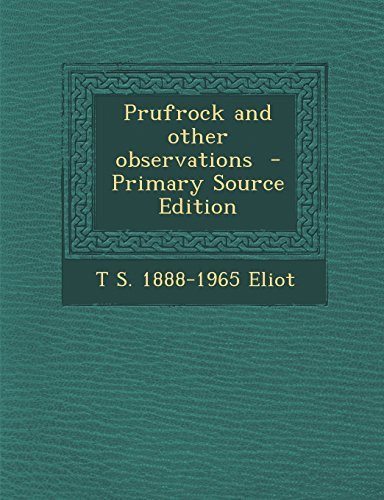What do you think?
Rate this book


42 pages, Paperback
First published June 1, 1915
let us go then ... you and I
Do I dare
Disturb the universe?
In the room the women come and go
Talking of Michelangelo.
No! I am not Prince Hamlet, nor was meant to be;
Am an attendant lord, one that will do
To swell a progress, start a scene or two,
Advise the prince; no doubt, an easy tool,
Deferential, glad to be of use,
Politic, cautious, and meticulous;
Full of high sentence, but a bit obtuse;
At times, indeed, almost ridiculous—
Almost, at times, the Fool
Weave
There will be time if
the lady and gentleman
wish to take their tea in
the garden. You dance
so much, weave afternoon,
but what have I?
Many days? You do not
know how I grow old.